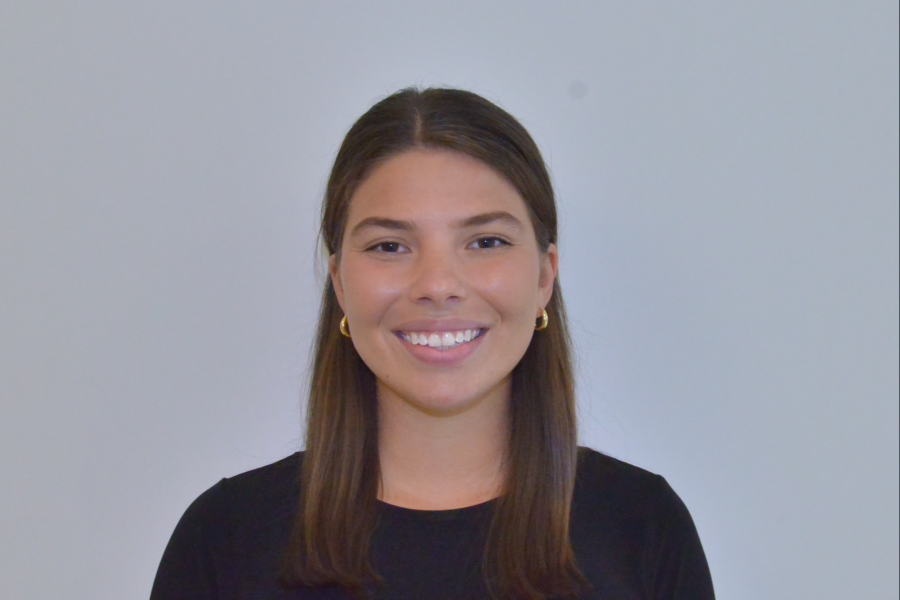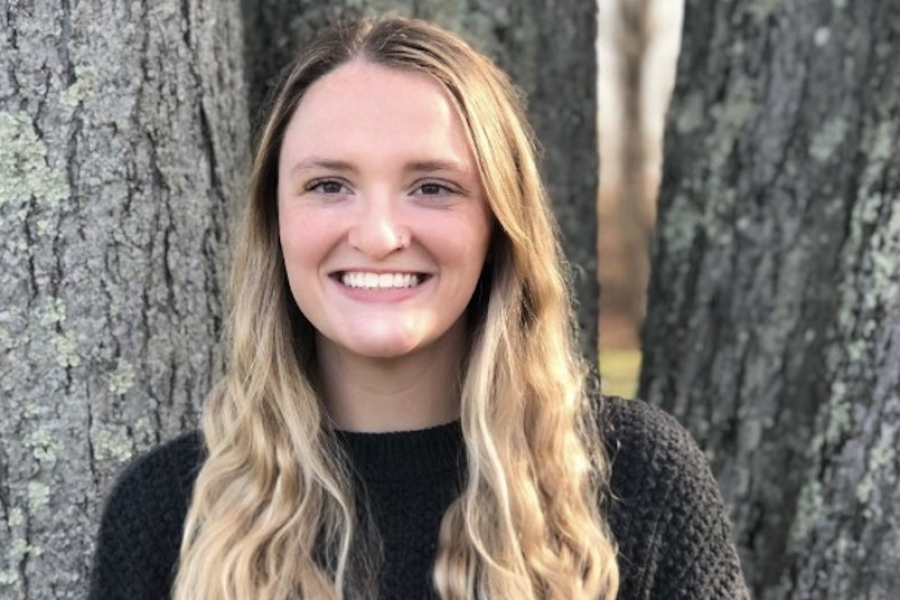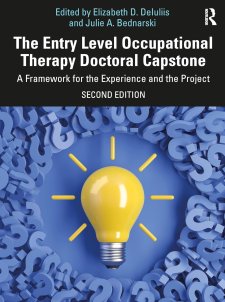Doctoral Capstone
The Doctoral Capstone consists of a capstone experience and capstone project, which will provide students with in-depth exposure to one of these concentrated areas of study:
- Clinical skills
- Research skills
- Administration
- Program development and evaluation
- Policy development
- Advocacy
- Education
- Leadership
Students may choose a secondary concentration area if it fits with the design of their doctoral capstone.
Capstone experience
The doctoral capstone experience occurs over 14 weeks, and a minimum of 32 hours per week. Students complete the capstone experience during the spring semester of their third year, after the completion of all coursework and fieldwork. It is the culminating experiential component of the OTD program.
The capstone coordinator, site mentor and faculty advisor (if applicable) will complete a formal evaluation to objectively assess student performance during the capstone experience.
Capstone project
The doctoral capstone project directly relates to the student's capstone experience and demonstrates in-depth knowledge in their concentrated area of study.
Students will present their work to their mentor and site representatives at their capstone site and at WMU's Capstone Dissemination Day in April of each year. Students' scholarly paper will be published on WMU Scholarworks and their video-recorded presentation will be published on the WMU OTD Capstones YouTube channel.
Capstone highlights

Fieldwork of Dreams
Dr. Jordyn Diaz, a 2024 graduate, used her capstone project to create a manual for establishing faculty facilitated fieldwork sites

Student to Catalyst
Dr. Tatum Johnson, a 2025 OTD graduate, used her capstone to provide education and implement sensory needs for adolescent males through a trauma responsive lens

Volunteer to Visionary
Dr. Samantha Dunleavy-Shotsberger, a 2024 graduate, used her capstone to evaluate sensory processing and functional outcomes for children participating in a read and ride program
Capstone presentations and papers
Doctoral capstone preparation
Doctoral capstone preparation occurs throughout your OTD program. Students complete two capstone preparation courses in the spring and summer I session of their second year. During capstone preparation, students complete a literature review and needs assessment, establish goals, and develop a supervision and evaluation plan for their capstone. Students collaborate with members of the capstone team throughout their preparation:
- Capstone coordinator - a full-time core faculty member, responsible for compliance with the doctoral capstone ACOTE standards.
- Site mentor - a professional (not necessarily an OT) who has expertise in your concentrated area of study and who can provide mentorship throughout your capstone.
- Faculty advisor - a faculty member who assists students with research-focused capstones with selecting optimal methodology, planning for data collection and analysis and supporting with scholarly writing.
As part of the capstone preparation process, students develop an experiential plan. The student will sign the plan along with the Chair of the OT department, the Dean of the College of Health and Human Services, and WMU's Provost.
WMU is required to track some student information as part of the capstone process. WMU uses CastleBranch to track information like background checks, immunization and titers (MMR, varicella, Hepatitis B), drug screens, training and certifications.
Student resources
- WMU OTD Capstone Summary - This resource will give students a brief overview of the OTD Capstone courses, timeline, objectives, curriculum themes, and philosophy.
- Recommended OT and health-related databases - Students can utilize this resource to search health and medicine databases when conducting their lit review.
- The Entry Level Occupational Therapy Doctorate Capstone: A Framework for the Experience and Project - This textbook provides a step-by-step guide for developing, planning, implementing, and disseminating the entry-level occupational therapy doctoral capstone experience and project.
Capstone coordinator
Holly Grieves, OTD, OTRL,
Master Faculty Specialist, Capstone Coordinator
Department of Occupational Therapy
200 Ionia Ave SW
Grand Rapids MI 49503
Phone: (517) 388-1652
Fax: (616) 771-4200
Frequently asked questions
Site mentors
Become a site mentor
Are you interested in becoming a site monitor for one of our OTD students? Contact our capstone coordinator to learn more about what site mentors do. We would be happy to have a virtual or in-person conversation about being a site mentor and how that might work for you.
Alternatively, you can submit your capstone idea for consideration by completing a capstone idea submission form. Our capstone coordinator will follow up with you.
These short videos may help you to better understand the doctoral capstone process and the responsibilities associated with the site mentor role
Capstone Defined
A brief explanation about what a Capstone Project and Experience is
ACOTE Standards
An overview of required standards for the Capstone Project and Experience
WMU OTD Curriculum
An explanation of how the Capstone Project and Experience fits within the WMU OTD curriculum
Capstone Process
An overview of the Capstone Project and Experience process
Capstone Documentation
Documents and requirements for the Capstone Project and Experience
Capstone Program Results
A breakdown of the settings OTD students conduct their Capstone Project & Experience
Site mentor support
Michigan Occupational Therapy Education Consortium (MOTEC) is a group of academic fieldwork coordinators, assistant fieldwork coordinators, and capstone coordinators from all of the OT and OTA programs in the state of Michigan.
MOTEC offers educational opportunities to provide tools and resources to support best practice in fieldwork and capstone education and to share developments in Michigan occupational therapy programs.
Site mentor tools
The Entry Level Occupational Therapy Doctorate Capstone: A Framework for the Experience and Project - This textbook provides a step-by-step guide for developing planning, implementing and disseminating the entry-level occupational therapy doctoral capstone experience and project.
Occupational Therapy Doctoral Capstone: Purpose and Value
Capstone Projects as Scholarship of Application in Entry-Level Occupational Therapy Education
Capstones: Voices from the Occupational Therapy Profession
Capstone Weekly Summary Form - Tool used to reflect on student’s performance and provide written feedback.






